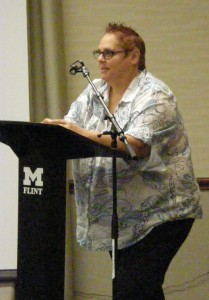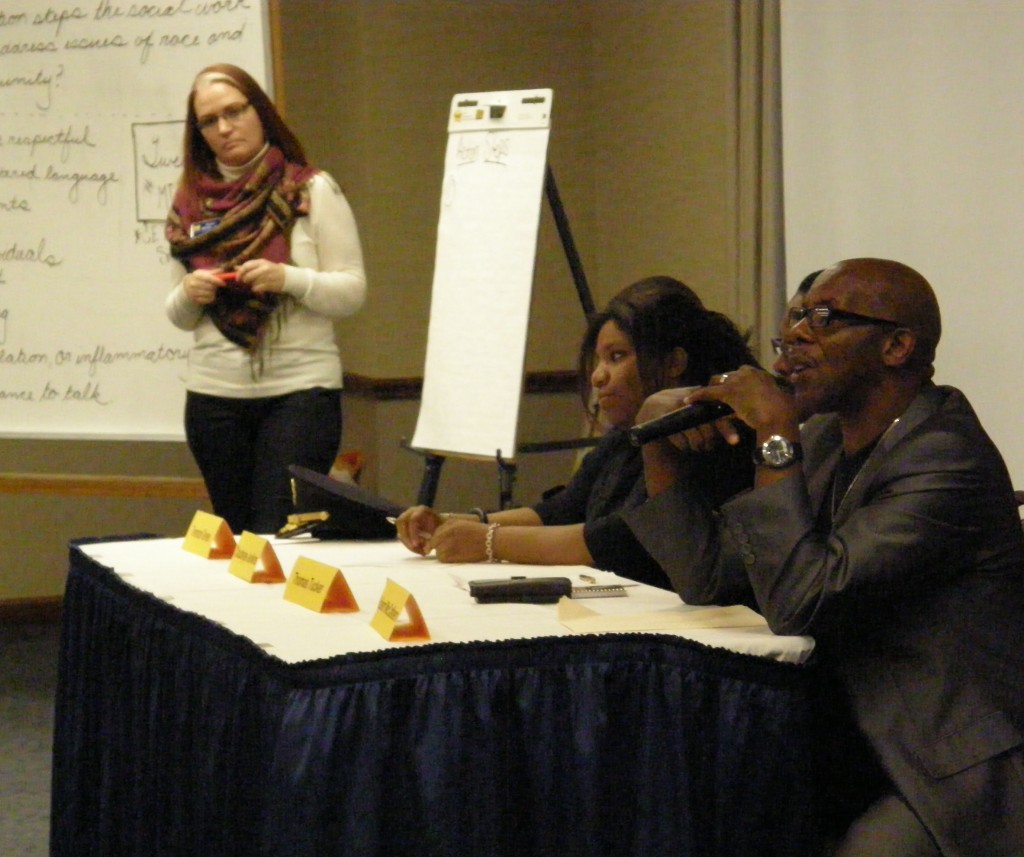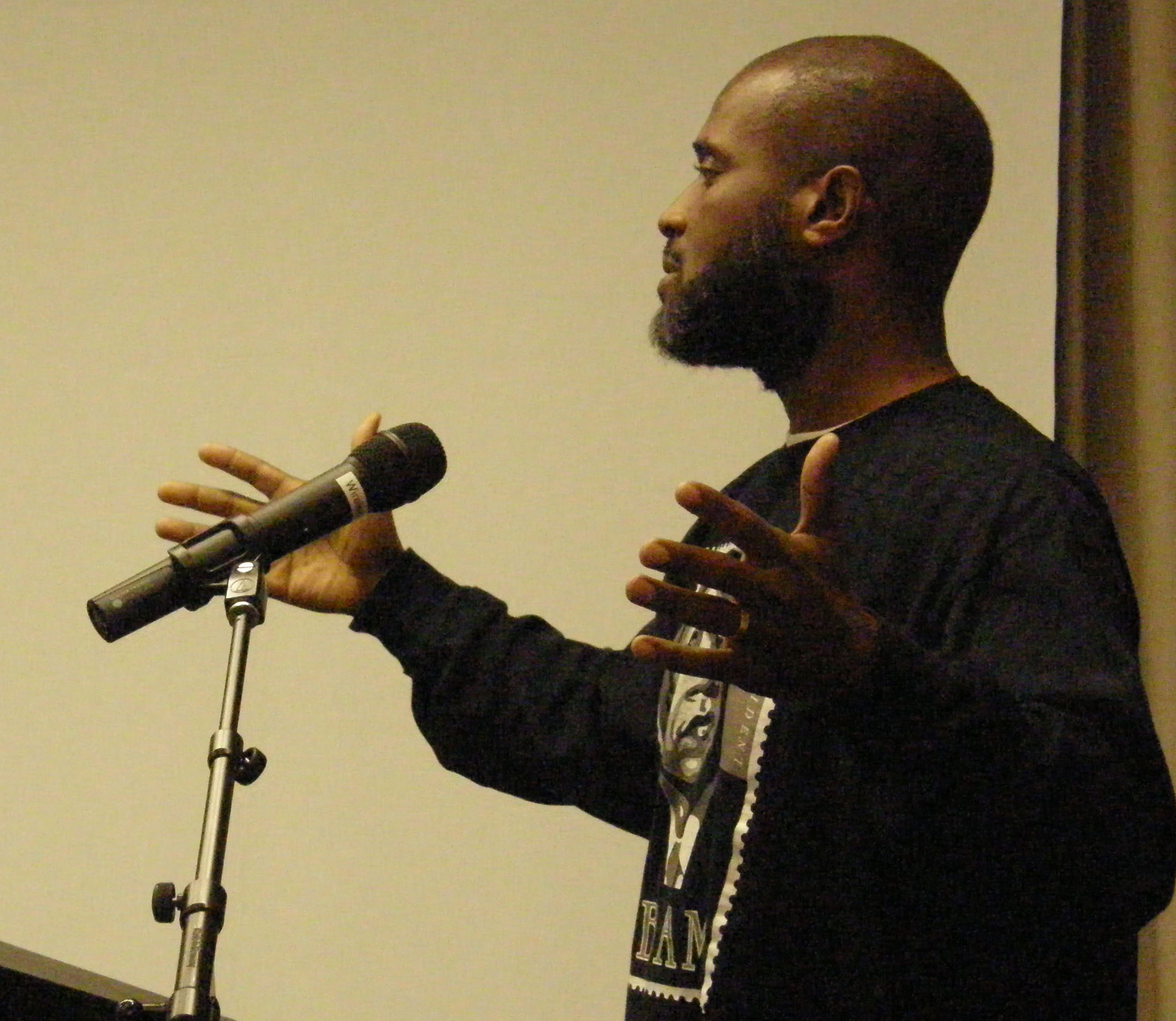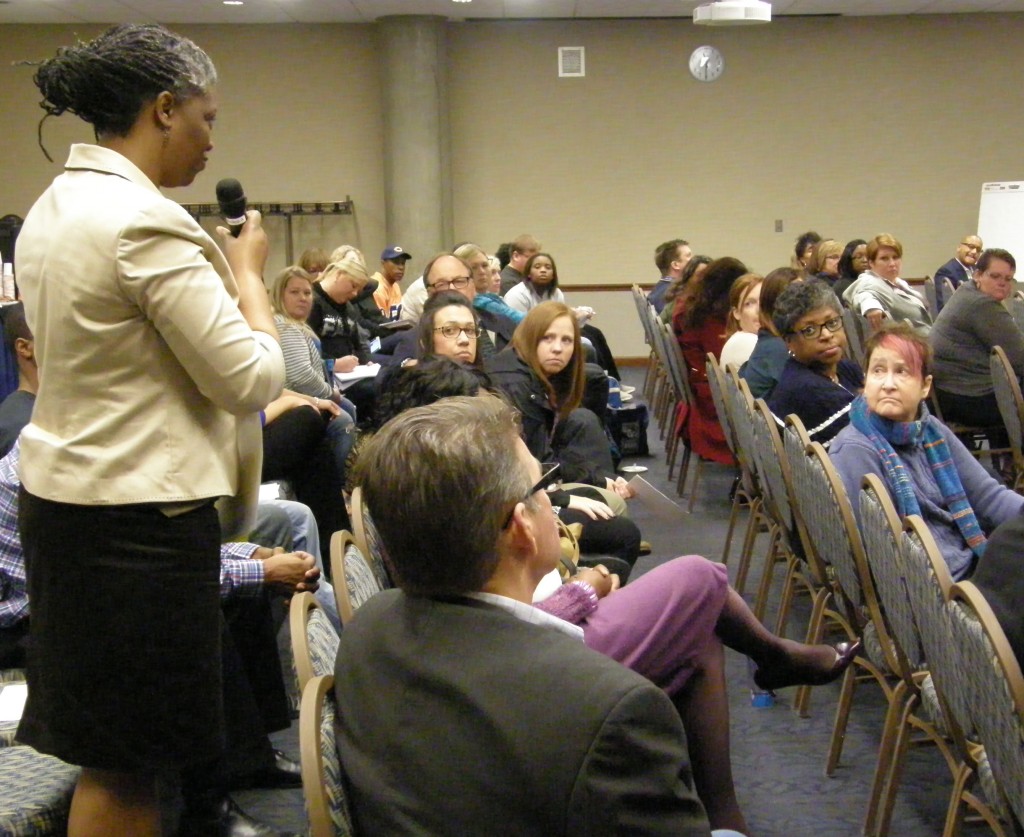A student-driven forum on race and racism held Oct. 22 at UM-Flint’s University Center developed into a frank dialogue among a diverse group of interested community members, students and faculty. The event was part of a state-wide initiative through the National Association of Social Workers to encourage deep and meaningful conversations about how social workers can help eliminate racism and biases on both professional and personal levels.
“We are talking on racism, not about racism,” said Professor Otrude Moyo, social work department chair, as the forum began. “Dialogue like this may be a catalyst for action.”
Social work student Paula Brooks asked prepared questions of a panel of Flint area black professionals that included Bernard Lawler, State of Michigan/City of Flint program manager; Terence Green, Mt. Morris Township Chief of Police; Claudnyse D. Jenkins, Esq, Executive Director of the Weiss Child Advocacy Center; and Robert McCathern, Pastor of Joy Tabernacle Church in Flint.
“In America, we’re all just finding a comfort zone for survival,” said Pastor McCathern.
“America has not seriously and courageously dealt with racism as a whole,” Lawler added. “What social workers take into their work environment is very critical. It’s very important that as social workers we treat everybody with dignity and respect no matter their color or religion. Use your influence to change existing policies that contribute to racism and injustice.”
The forum began with a video-taped interview of former California Congressman Ronald Dellums who described the growing divide in today’s society and the urgent need for America to “talk about race in a way that allows us to move beyond it.” Dellums suggested the need for expanded mental health assistance and more mental health training opportunities as well as the development of a sample model policy on the use of deadly force.
Social work professors Todd Womack, Kasie Nickel-White and Jessica Camp facilitated the dialogue, developing a group consensus on ways for social workers to actively address racism going forward. Those ideas included acknowledging one another with dignity and respect, working to improve policies, building educational experiences about cultural differences, being more intentional with personal interactions, and teaching resiliency.
The panel and attendees, black and white alike, discussed their thoughts about the need for Americans to recognize and immediately address off-hand racist comments as well as racial biases that are inherent in the upbringing of white Americans, and which are present in every-day life.
Pastor McCathern talked poignantly about the simple act of acknowledging people of color while out in the community. “We can begin by at least acknowledging the existence of a person,” he said.
“No one wants to have a serious conversation about the fact that we’re all different,” Jenkins said, pointing to the presence of pre-conceived thoughts about races and cultures. “We have to be honest with ourselves that there’s still the silent code that people abide by.”
Green said that law officers are social workers also and are trained to go further in their interactions with people to understand their problems and to provide better assistance to them.
The panel and group discussed the presence of biases among white Americans that originate from ignorance or intolerance. Taking time to educate one another about unique cultural differences was identified as an important way to move forward to eliminate negative assumptions about race and culture. The responsibility of the education system to accurately present historical aspects of race and culture was another concern.
“It’s about us being okay with not knowing something and also teaching each other about who we are,” commented senior social work student Valencia Pullom.
Those in attendance were encouraged to continue the dialogue at a Legislative, Education & Advocacy Day on Nov. 11 at Lansing Center.





